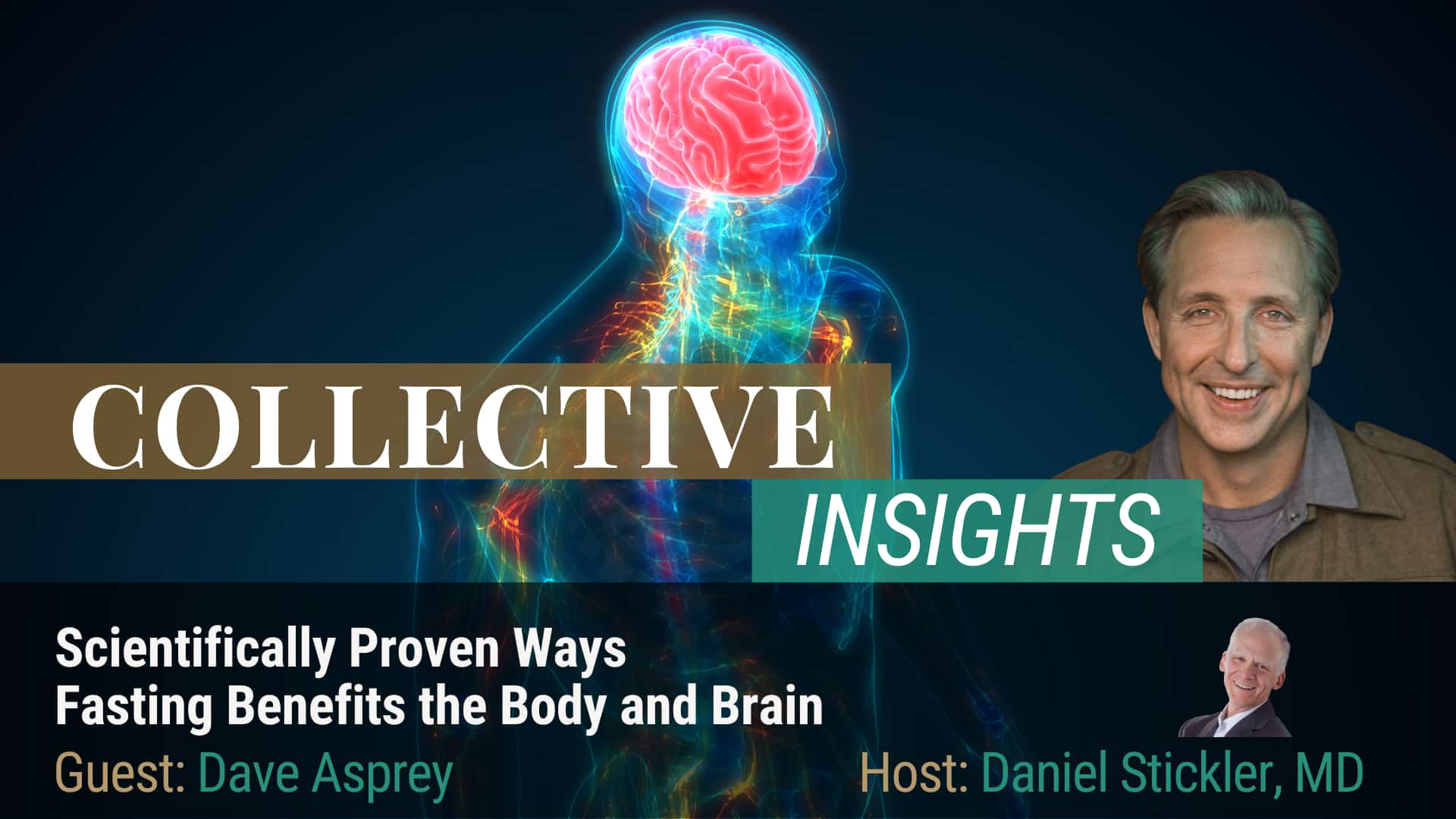Dave Asprey, "Father of Biohacking" and founder of Bulletproof and New York Times bestselling author is here today to help us get the low-down on how fasting changes the brain and body.



Dave Asprey, "Father of Biohacking" and founder of Bulletproof and New York Times bestselling author is here today to help us get the low-down on how fasting changes the brain and body.
Mark Divine, expert in human performance as it is displayed in mental toughness, leadership and physical readiness, helps us build an unbeatable mind using neuroscience and mindfulness techniques.
We're in a race between consciousness and catastrophe. Dr. Roger Walsh joins us to discuss how integral psychology, altered states, and spiritual practices can help us meet our current global crises while building a “bunker of light” for future generations.
When you open your eyes, do you see the world as it really is? Do you see reality? Neuroscientist and world renowned expert in perception, Dr. Beau Lotto, reveals the science behind the way our brains play tricks on us while also presenting a revolutionary approach to applying these insights about perception to every aspect of our lives.
Andrew Cohen, international spiritual teacher and founder of Evolutionary Enlightenment, joins us today to discuss the death and rebirth of his community and self.
Naveen Jain and Dr. Momo Vuyisich, Ph.D. shed light about whether or not science is on cusp of making illness optional by predicting and preventing chronic diseases through a deeper understanding of an individual’s biology.
Nicole Prause Ph.D. debunks popular misconceptions about the science of sex and reveals how the brain the grows, adapts, and rewires during sexual stimulation.
Naveen Jain, of Viome, gives us a front row seat to a discussion highlighting how in the ongoing fight against chronic disease, scientists have begun to turn to an army of unexpected allies – bacteria and other microorganisms.
Dr. Julie Holland joins us to discuss why we need connection, how we’ve lost it, how we might find it again, and how psychedelics can help.
Modern life as we know it is a blessing, but it comes at a cost. Today, Kyle Kingsbury, former football player and retired MMA fighter, is here to help us integrate ancient living into modern life for an optimized brain and body.
Nick Farr, author of The Long Disaster, a manifesto of preparedness, joins us to share a message of hope amongst our present meta-crisis. Nick proposes closing the gap in six crucial areas.
What’s the secret to mental toughness? At the core it’s one’s ability to tolerate discomfort. Discomfort is the price we pay for resilience. Joe De Sena, CEO and founder of Spartan, shares techniques to help us build a resilient mind and upgrade our fear IQ.
Christopher Bache shares his courageous and outrageous thought experiments and lived experience with therapeutic psychedelics and his inquiry into the mystical.
Collective Insights has covered many aspects of health and today we cover a whole new one, financial health. Garrett Gunderson is the perfect person to introduce us to this topic as he is commonly referred to as a financial genius within the entrepreneurial communities. And what better person to host this conversation than our very own CEO and co-founder James Schmachtenberger!
JJ Virgin opens up about why an n-of-1 approach to nutrition was vital in her 15-year-old son healing from a traumatic brain injury. In an eye-opening discussion we tackle the false dogmatic nutrition beliefs that are impacting both our microbiome and cognitive function.
Matt Maruca, CEO of Ra Optics, and citizen scientist joins us to unpack the science behind how light drives mitochondrial function and circadian rhythms and to share his story of how chronic illness led him to conclude that the most important factor for living our best life lies in our relationship with light.
Tyson’s insight into Aboriginal culture leads us on a journey where we explore the defining feature of a civilization, how western culture has subjugated femininity, and what it means to distribute violence throughout the society.
Concierge medicine doctor with expertise in ketamine integrative treatment, integrative medicine and psychoneuroimmunology, Benjamin Kaplan-Singer MD, joins us today. He shares information about the true nature of meta-immunity, anti-fragility and biohacking tips to further improve your meta-immunity. Dr. Ben has 18 years of experience in biomedical research and has been teaching his patients how to be masters of self-care so they can be free from chronic disease and reclaim their vitality.
Ariel Garten, Co-founder of InteraXon, the makers of Muse, guided us on a mindfulness meets science journey as we unpack the research that supports how meditation makes significant, actual changes inside the brain. She shares insider tips for using meditation as a tool for increased focus, managing anxiety, and greater self awareness.
Bill McKibben is a noted environmentalist, author, educator, and activist. He famously wrote the book The End of Nature 3 decades ago, and most recently in his book Falter he explores what it might mean for us to come to the end of our civilization rope and what do we do next. He is the founder of 350.org global Grassroots movement for environmental advocacy, justice, and divestment from petrol capitalism.
The bad news is there are toxins in our environment that can negatively impact our brain function, but the good news is we can heal the brain physically and psychologically with lifestyle changes. Clinical psychologist, Brant Cortright, Ph.D., sheds light on the processes of neurogenesis and explains neuroplasticity. He also describes the relationship between cognitive decline, anxiety and depression.



















